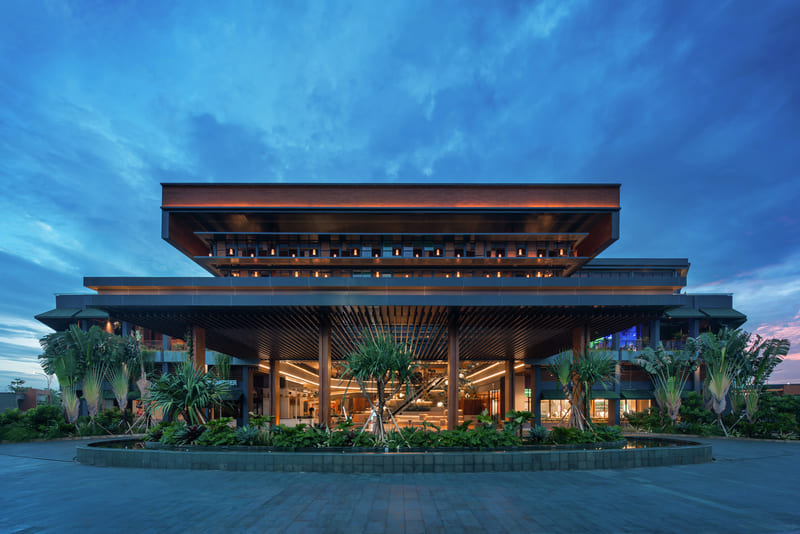Central Market PIK’s sustainable features make the retail property not only a delightful destination but also a pioneer in eco-friendly retail spaces.
It has been more than a year since Central Market PIK earned the Green Building Certificate from the International Finance Corporation – World Bank Group and Green Building Council Indonesia (GBCI), anointing the former as the first retail building in Indonesia to receive the EDGE Advanced Preliminary Certificate. By attaining the EDGE Advanced certification award, Central Market PIK has showcased its commitment to efficient management and usage of energy, water, and the embodied carbon of materials. Moreover, this also underscores Central Market PIK’s commitment to contribute to the better well-being of the planet — by not only using less energy and water but also conducting its construction and development-related efforts with materials that are guaranteed to generate the least possible impact on global warming.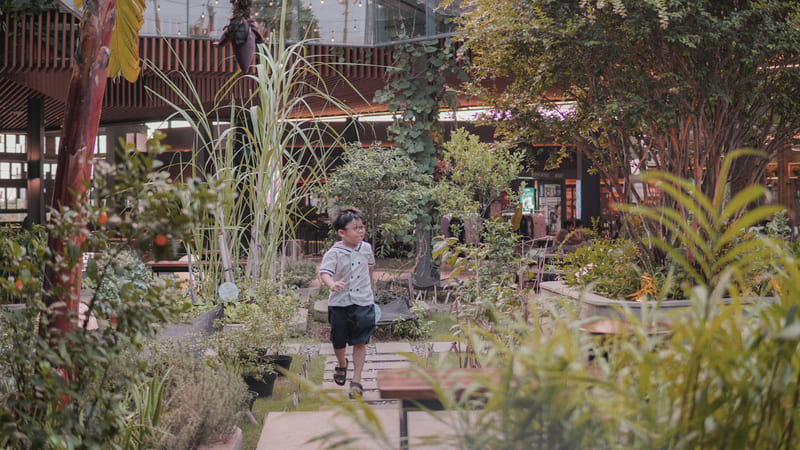
In a much larger picture, having Central Market PIK as a full-fledged ‘green’ building reflects Agung Sedayu Group’s commitment to sustainable retail development. The Commercial & Hotels CEO of Agung Sedayu Group, Natalia Kusumo, divulged that the genesis of the idea was born out of the group’s concern over the state of the world during the recent COVID-19 global pandemic.
“The fragility of life became even more apparent, and I felt a strong urge to leave the world in a better state for future generations,” Kusumo explained. “As a developer, I believe we have the power to create healthy living spaces, and it’s a responsibility I take seriously. From a business perspective, green projects are not only cost-efficient but also provide a superior environment for people. I’m proud of what our team has accomplished with Central Market.”
Now that Central Market PIK has been up and running for more than a year, Kusumo has observed the fruits of the labour made by Agung Sedayu Group. Nestled at the heart of Pantai Indah Kapuk’s effervescent Golf Island neighbourhood, Central Market PIK’s all-encompassing facilities, such as a bookstore, children’s playground, edible garden, F&B outlets, pet playground on the rooftop, retail stores, and supermarket, are both a manifestation and an attestation of Agung Sedayu Group’s forward-thinking, sustainable vision.
“Central Market has been operational for a year now. Whilst buildings generally depreciate, landscapes appreciate in value. A well-maintained landscape ensures that a property ages gracefully. For instance, our Lee Kwan Yew plant [Vernonia elliptica], affectionately called the ‘green hair’ of Central Market, grows more beautiful over time. Our gardens are becoming increasingly lush. My message is clear: invest in green, both in development and finance,” Kusumo continued.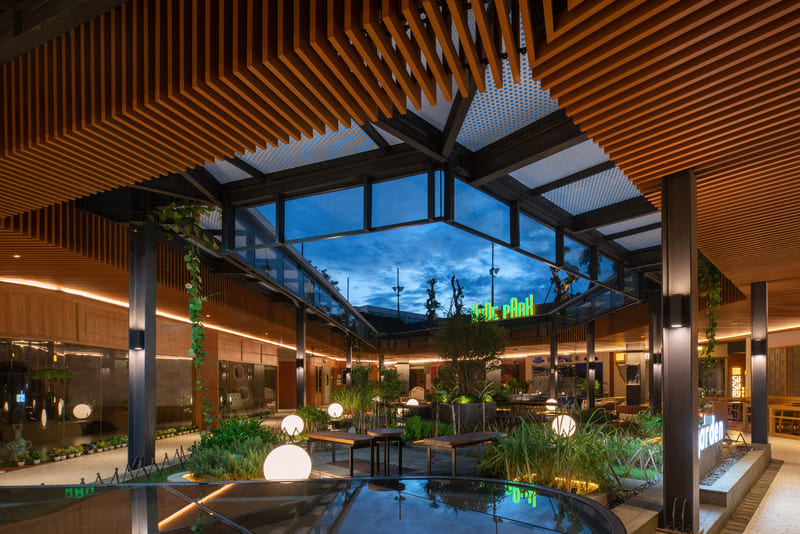
As a ‘green’ building, Central Market PIK continues to both commit and demonstrate its main idea as a sophisticated retail property that boasts an impressive capacity for sustainability. This, furthermore, focuses on several different, yet nonetheless unneglectable aspects: (i) energy efficiency; (ii) water efficiency; (iii) material selection; (iv) indoor environmental quality; (v) sustainable site planning; (vi) waste reduction; and (vii) lifecycle considerations. According to Farida Lasida Adji, the East Asia Regional Lead Green Buildings and Green Cities Program of the Climate Business Department at the International Finance Corporation (IFC), and Tito Aribowo, the Executive Director of the Green Building Council Indonesia (GBCI), the sustainability value of a building, including a retail property, has grown more imperative than ever considering approximately 38% of annual global greenhouse gas emissions can be attributed to building operations.
This spirit is also in line with the Indonesian government’s ambitious target of achieving net-zero emissions by the year 2060.
“Building sustainably and obtaining certification [such as EDGE certifications] offers numerous benefits to asset owners and other stakeholders – it is a win-win for everyone,” they elaborated. “The people who build them save money because the buildings are cheaper to run – they do not need as much energy or water. This also increases the buildings’ value. People who visit or live in these buildings are helping the Earth and they get to be in a place that is better for their health. Tenants of sustainable buildings also report significant savings in their utility bills. When we build in a way that is friendly to the planet, we emit fewer greenhouse gases, use energy and water more wisely, and help keep our planet green and healthy.”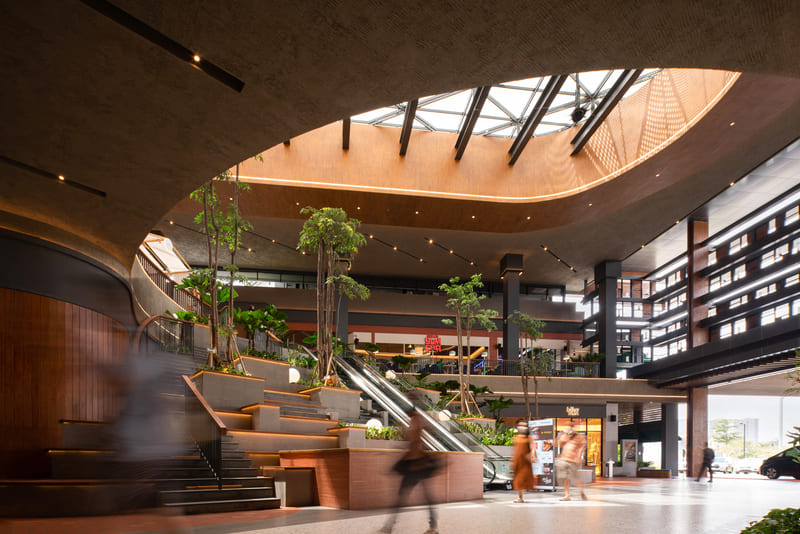
Concerning EDGE certifications, Adji and Aribowo explained that there are three levels in place: (i) EDGE Certified, achieved when a building is designed to use at least 20% less energy, water, and embodied carbon in materials used for construction compared to typical buildings; (ii) EDGE Advanced, achieved when a building has managed to use 40% less energy on-site and save at least 20% in water use and carbon materials; and (iii) EDGE Zero Carbon, awarded to buildings that have achieved 100% carbon neutrality in their energy use. As of the year 2024, Central Market PIK has, thus far, received the EDGE Advanced certification award.
In developing Central Market PIK as the ‘green’ building we all know today, Agung Sedayu Group worked alongside Eco-Mantra as the environmentally sustainable design consultant. Mendi Siahandan, the Head of Operations and Green Building Expert at Eco-Mantra, explained that Central Market PIK’s commitment to sustainability and a healthier Earth should put the retail property in a league of its own.
“Visitors will enjoy a healthier, more comfortable shopping experience [at Central Market PIK] due to our open design, green landscapes, and natural lighting, which are known to improve well-being and comfort,” Siahandan enthused. “Environmentally, Central Market sets a benchmark by consuming less water and energy compared to similar commercial buildings in Indonesia, thus reducing its carbon footprint. Our sustainable features make Central Market not only a delightful destination but also a pioneer in eco-friendly retail spaces.”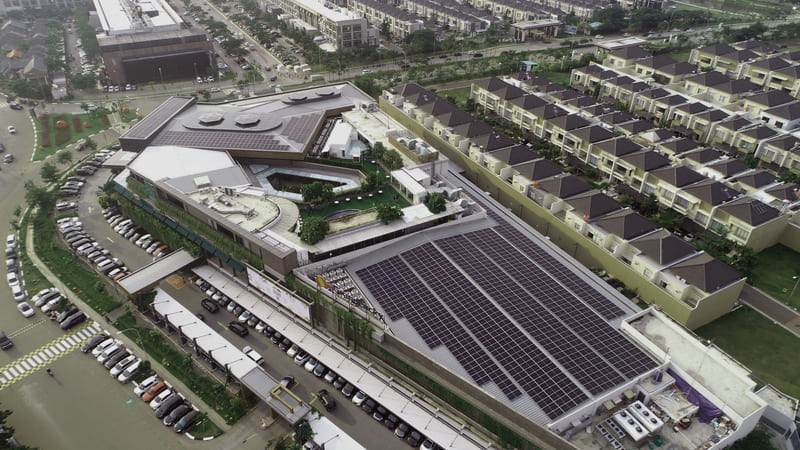
Moreover, Agung Sedayu Group also partnered up with PTI Architects. Alongside Bitte Design Studio, PTI Architects worked on Central Market PIK’s interior design while making sure that the development would consistently make use of sustainable materials, such as natural stones, plastic-wood composite, reclaimed wood, and terrazzo. Doddy Agustiawan Tjahjadi, the Managing Director of PTI Architects, commended how Central Market PIK is ahead of its time as a ‘green’ building worth acknowledging as a benchmark for future retail developments.
“In the next decade, the trend will grow more advanced as more technology is available, and people realise that everyone has a part in global warming and corporations take part in their responsibility. In [Central Market] PIK, we go one step further by experimenting with various technologies. It’s become necessary for all new buildings in Jakarta to have certification,” Tjahjadi remarked.
And of course, there is nothing quite like Central Market PIK. As the old saying goes, What makes you different makes you special.
“Central Market PIK is a mix between a pure mall and an open-air mall, still protecting tenants from rain and heat. We utilise strategic openings to let the coastal western winds flow through and keep the temperature cool. It’s a good place where people can hang around in cafes and restaurants; they can feel nature while still comfortable inside a building,” Tjahjadi enthused.
To find out more about Central Market PIK, you can visit its official Instagram page at @centralmarketpik. Central Market PIK is located at Golf Island, Pantai Maju, Jl. Boulevard Raya, Kamal Muara, Penjaringan, DKI Jakarta 14470.




